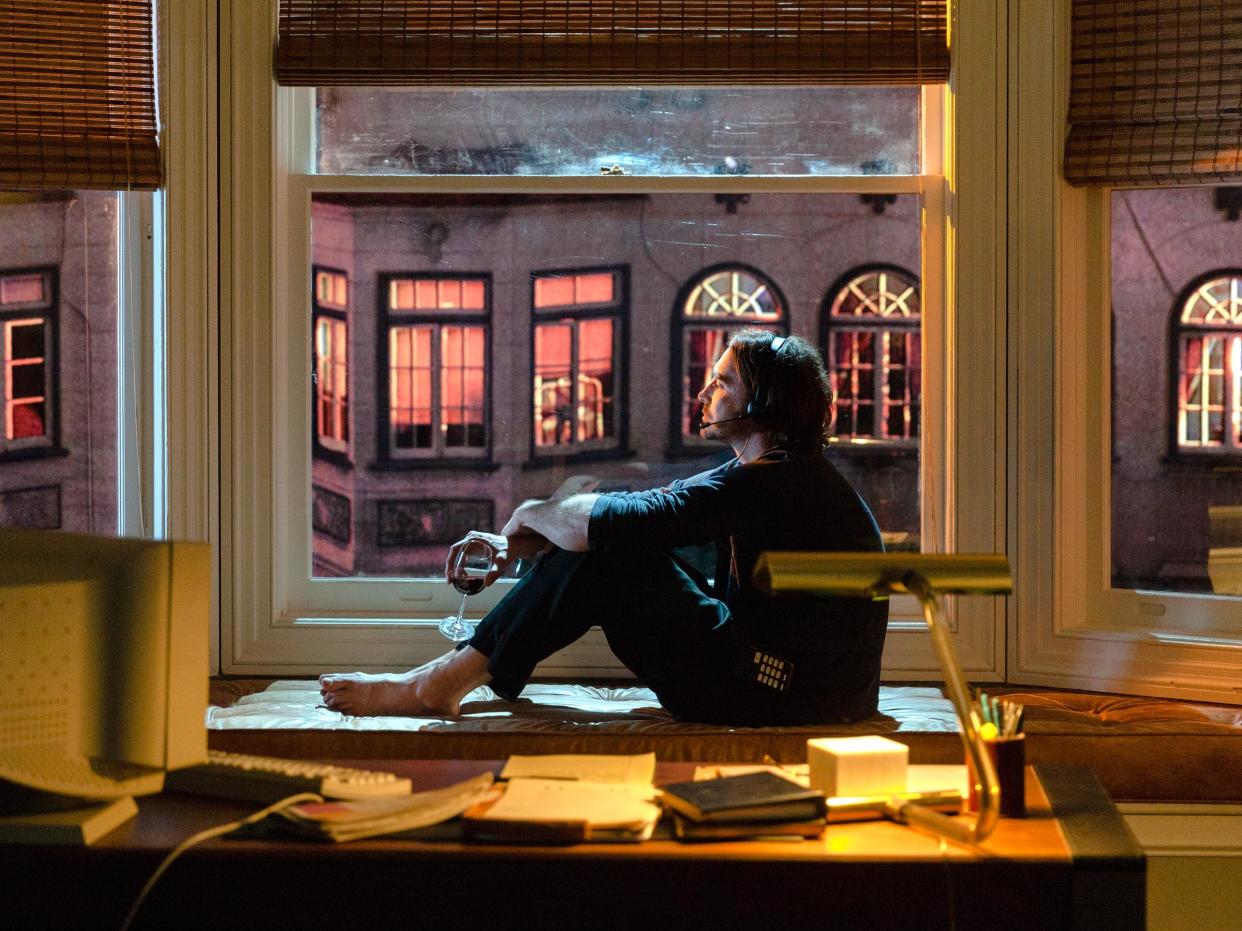Halt and Catch Fire remains a luminous drama in final season: EW review

In the second episode of Halt and Catch Fire‘s fourth and final season, two people spend an entire day talking to each other on the phone. Joe (Lee Pace) is a mad-genius internet pioneer in the Frontierland of Silicon Valley trying to divine the next golden find. Cameron (Mackenzie Davis) is a brainy and headstrong video-game auteur questing for a next-level entertainment experience, something more elevated than bloody boss fights. But in this hour, they’re just two lonely souls with a fraught history and a broken relationship, connecting, repairing, and becoming enmeshed all over again.
On any other TV series, isolating lead characters and making them relate via technology might yield dramatic entropy. But the arc of this exquisitely acted conversation exemplifies Halt and Catch Fire‘s dynamic powers. The show is a period drama about our boundless pursuit of what’s next, set in the primitive pre-Wi-Fi days of the dial-up ’90s when phones were used only for talking and not yet capable of tweeting or FaceTiming or Facebooking. The story is a creation myth for hypermediated society, but the rich interpersonal dramas double as commentary on the quality of 21st-century interconnectivity. And Joe and Cameron’s epic phone call is a metaphor for the evolution of online communication. The talk ranges from sharing painful intimacies and banal status updates to yakking about pop culture and working out the language of a truth-obscuring press release. But the conversation involves real talking. Using a phone to speak to each other? How novel! We should try that!
That wide-ranging chat — which begins awkwardly, then ignites — mirrors the evolution of Halt and Catch Fire itself, a show that overcame a sputtering start to become a luminous drama. The slick, computer-age Mad Men wannabe, buggy with tired edginess, sharpened and shaped up in season 2. Season 3 found winning focus by charting the rise and fall of Cameron’s partnership with engineer-turned-suit Donna (Kerry Bishé) and their gaming/e-commerce company, Mutiny. Along the way, creators Christopher Cantwell and Christopher C. Rogers went from aping the antihero playbook to refining it. Each of the main characters — including Donna’s now ex-husband Gordon (Scoot McNairy) and father figure Bosworth (Toby Huss) — has become incredibly compelling and unique. Their innate optimism is shaded; their flaws render them sympathetic, not alienating; and their conflicts in love, friendship, and business are thrillingly complex. You see and feel how everyone is correct and selfish, and the outcomes have profound consequences.
Season 3 concluded with two gripping eps that jumped four years to 1990, into the early days of the internet browser wars, and this penchant for rebooting makes it somewhat easy for newcomers to dive in. Season 4’s first three hours make major investments in everyone, especially Gordon, imbuing them all with deeper poignancy. There are two time jumps, a business collapse, and a new killer app to chase. Together they suggest a final chapter driving toward reflection on our always-online present and our restless search for self-realization and the next big thing. Halt and Catch Fire is an urgent story of rehumanization for a cold, wired culture. Plug in now.

